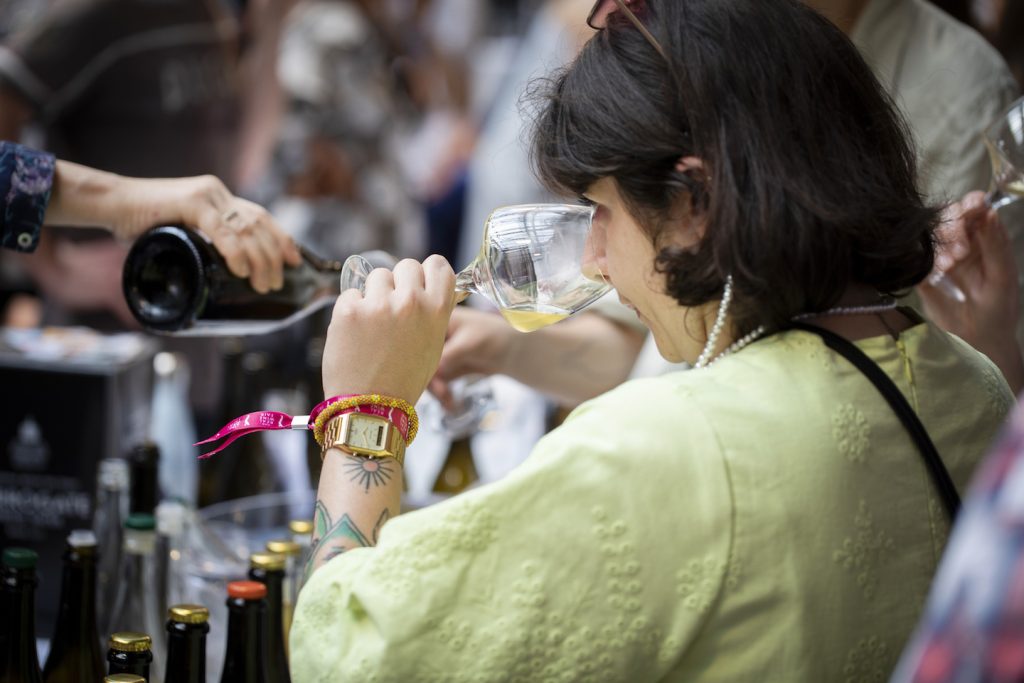We are not machines. Our palates are not perfectly calibrated to taste sensitively all the time. We are too tired to taste well sometimes and become aware of tasting less well. Or are not aware, and simply do not enjoy the taste of the wine at a given moment.
Fatigue may be a symptom of underlying physical and mental conditions. Common causes include insufficient sleep, an unhealthy diet, not exercising regularly, and depression, grief, stress, and other mental health problems.
Studies have found that fatigue may recalibrate our taste buds. One piece of research showed that healthy individuals who were more sleepy rated umami and sour tastes higher. In another study, Japanese college women with higher fatigue scores and lower anger scores had a decreased perception of sour taste. A study of oncology patients receiving chemotherapy found that nearly 50% of patients reported changes in the way food tasted, and these patients also had higher levels of fatigue. Fatigue can be associated with a metallic taste in the mouth, which is also known as dysgeusia or parageusia.
Another form of tiredness is called palate fatigue, which occurs when the nose and taste buds are exhausted. Research here suggests that it is more likely that the brain becomes fatigued and dulled from receiving an overload of identical or similar sensory information. When the brain takes in multiple similar data signals in a short period, it can mix up the signals and false readings are created. This is known as adaptation.
Studies have found that fatigue may recalibrate our taste buds.
Flavour fatigue is a similar idea, with the flavour-detecting sensory receptors on one’s tongue becoming less responsive, making food and drink taste less distinctive.
Our responses may also be affected by the specifics of environment. For example, our sense of taste and smell change when we are on an airplane. Why this occurs, and why it seems to affect some more than others, it is probably some combination of low pressure, dry air and background noise. Low pressure and dry air both affect how much we are able to smell, which is an important aspect of flavour. Background noise also affects one’s sense of taste, by causing vibrations in the middle ear. The nerve that carries information from your tastebuds to the brain, called the chorda tympani, passes through the middle ear – and vibrations can disturb the transmission of signals.
Anecdotal evidence suggests that atmospheric pressure and even humidity can affect the perception of wine, but it is almost impossible to prove. How does one, after all, measure relative deliciousness when individuals have such very different taste preferences? When we start examining wine perception at this level, we would need to factor in all the variables that may or may not affect how a wine might taste such as lighting, background noise, our diets, and plain old bottle variation.
That said, the consensus is that variations in pressure do affect sinus cavities, and we receive our perceptions of wine through these apertures. Hence the supposition that wine tastes better on high pressure days.
Human taste thresholds are also modulated by serotonin and noradrenaline. Various studies have demonstrated how neurotransmitters affect taste. It seems that tasting bitter things can be altered by changes in both serotonin and noradrenaline levels, that the perception of sweetness is impacted by only serotonin levels, and that sour taste is affected by noradrenaline.
How we taste is who and what we are at a given point in time.
Our mood determines the quality of our tasting. Sometimes (for whatever reason), we are distracted and not focused on the task in hand. A mindset that is analytical, quizzical to the point of scepticism, dampens our capacity to respond pleasurably to a particular wine, whereas feeling positive, excited and open to being stimulated, leads us to look for the good in the same wine. Distractions can be bad: loud noise,
When we say that a wine tastes different, of course, what we really mean is that our perception of the wine’s taste is different. There are some fairly basic reasons why this might be the case. Firstly, to do with the wine. The wine in question may be older and more developed (or, may have deteriorated since the first tasting). It may be different (bottled off a different tank or barrel or a different day) to the one we originally experienced. It may have been stored differently and served differently. (Differences in temperature of a wine and the size and shape of the glass it is served in can materially alter the aromas and tastes of the wine.) Our memory of tasting a wine may well have affected our perception of it. Our current expectation undoubtedly will determine our response (be it gratified or disappointed). Our body chemistry will have changed, our palate may be affected by food and our sense of smell by other ambient smells and other environmental intrusions. We might have a cold, be hung over or simply fatigued. As individuals, we are constantly shifting variables just like the wine itself. How we taste is who and what we are at a given point in time.


